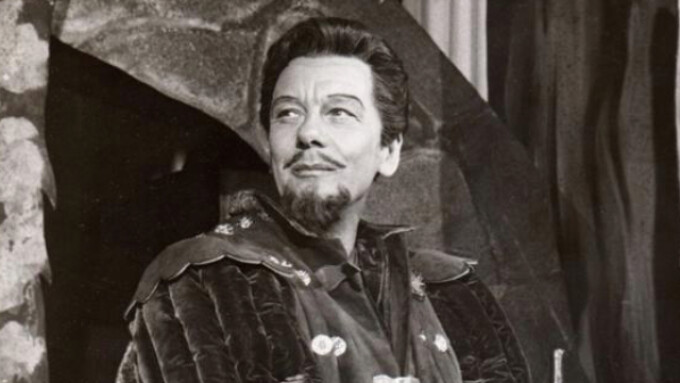LONDON — Production has concluded for "Trouser Bar," a gay porn movie based on a script that the late Sir Arthur John Gielgud secretly penned for Peter de Rome, despite stern opposition from the actor's estate.
Gielgud's storied acting career spanned eight decades and revolutionized Shakespearean theater. He was fond of De Rome, the 'grandfather of gay porn,' who made his films during the 1960s when homosexuality was illegal. De Rome's daring cinema inspired film producer David McGillivray to make a documentary about him called "Peter de Rome: Grandfather of Gay Porn."
Last year, McGillivray vowed to film Gielgud's secret gay script. “Peter de Rome knew everybody when he was working, including John Gielgud, and John was so impressed with Peter’s work — which of course was porn — that he wrote Peter a screenplay," McGillivray said. "Nobody knows anything about this script, it’s not in the John Gielgud letters, it’s not mentioned in the biographies, it’s an unknown script. John Gielgud’s only screenplay. So next year, we are going to make that… It’s called 'Trouser Bar'. John Gielgud was obsessed with trousers, loved corduroy and leather. And so he wrote a film set in a menswear shop.”
Gielgud never came out as gay, but was arrested in 1953 after he was caught cruising in a Chelsea public lavatory. The decision to make Gielgud's movie a cinematic reality infuriated his estate, The Sir John Gielgud Charitable Trust, which has handled his affairs since his passing in 2000 at the age of 96.
“Pornography is still a stigma in this country, but Sir John loved porn and, in his letters, he talks about visiting gay cinemas,” added McGillivray. “I was shocked when the trust didn’t give me permission. We stuck to Sir John’s script very tightly when we made the film a couple of weeks ago. He was very specific about the clothes he wanted the actors to wear.”
"Trouser Bar" is set in a menswear shop, featuring roles for Nigel Havers, Julian Clary and Barry Cryer. It cost £50,000 and is currently being edited, but may not be screened in Britain due to intellectual copyright claims.









